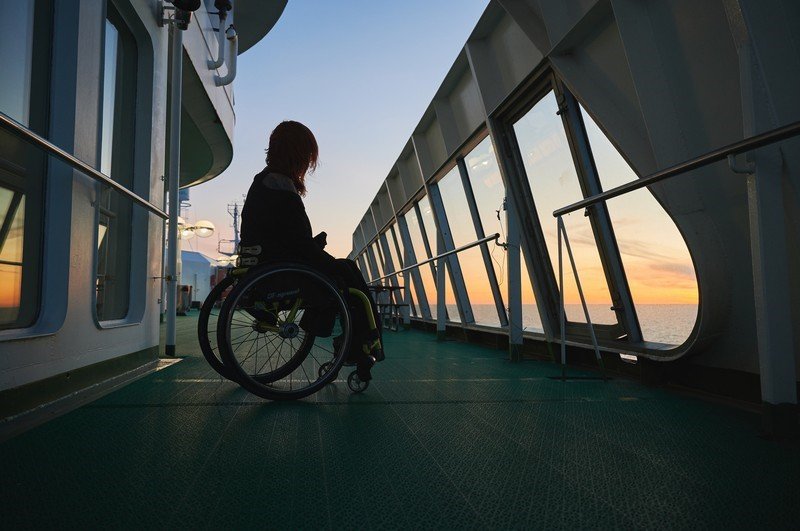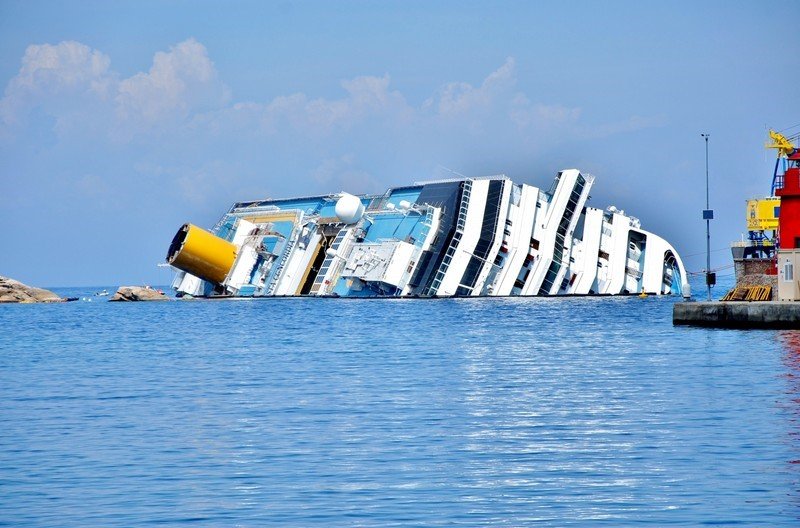Offshore Accidents
Over $1 Billion RECOVERED For Maritime Accident Victims
Cruise Ship Accident & Injury Lawyers
Injury Claims for Passengers of Cruise Ships
Of the millions of cruise ship passengers who sail each year, some are seriously injured or become ill while at sea. When these injuries result from negligence on the part of the cruise line, it may require a cruise ship injury lawyer to sort out the complexities around a claim for fair compensation.

Certainly, cruise ship injuries and illness have made headlines recently, raising awareness of the responsibility of vacation cruise lines to reasonably protect their passengers from safety issues onboard. Accidental injuries, illnesses, and death that happen in international waters must be investigated, yet the legal avenues for victims of negligence on a cruise ship can be complex and difficult to navigate.
What steps should you take if you or your loved one died, became ill, or sustained an injury while on a cruise? Let’s look into the types of injuries that happen to cruise passengers, what to do if you have become ill or injured on a ship, and how to file a justified claim in the right jurisdiction with help from a cruise ship personal injury attorney.
What Types of Injuries Can Happen on Cruise Ships?
Injuries and disease outbreaks can and do happen on cruise ships. Sometimes these dangers were preventable, sometimes the injured person contributed to their own injury and, in other cases, there was negligence on the part of the company, the ship captain, the crew, or fellow passengers. Some of the types of cruise ship sickness or injuries reported include:
- Food poisoning from unsafe food preparation or storage
- Slip and fall accidents from broken railings or ladders, which may include falling overboard
- Swimming pool injuries or drownings
- Malfunctioning elevator or escalator accidents
- Exposure to toxic chemicals
- Unseaworthy vessels which sink, causing injuries and wrongful death
- Infected insect bites from bedbugs, rat bites, or other sicknesses from exposure to animals onboard
- Being struck by falling objects that were improperly secured
- Contracting Legionnaires’ Disease, intestinal viruses (norovirus), bacterial infections, or other infectious diseases (such as COVID-19) resulting from improper sanitation or lack of reasonable safety measures
- Being assaulted by crew members or fellow passengers or being injured as the victim of a crime on board
- Burns or smoke inhalation from fires at sea
- Suffering injuries resulting from being adrift, running aground, colliding with another vessel, or during evacuation procedures
- Being injured while engaged in ship-sponsored activities or outings
- Medical malpractice by ship’s doctors or medical staff
How Common Are Cruise Ship Injuries?

There are detailed reports that outline the injuries and deaths which occur on cruises. Approximately 30 million passengers travel on 272 cruise ships each year,1 and an overview of the data shows that crimes, illnesses, and personal injury are statistically low compared to the number of passengers, but several areas are of rising concern in recent years.2,3
- More than 448 major cruise ship accidents were reported since 2005.
- 15 cruise ships sank between 2010 and 2013, and 66 ran aground between 2005 and 2013.
- More than 300 people have fallen overboard since 2000, with 17 “man overboard” incidents in 2017 alone.
- The FBI investigates as many as 100 serious crimes each year that occur on cruise ships, the majority of these being sexual assaults.
- Reports indicate 9-16 outbreaks each year of gastrointestinal viral diseases on cruise ships, the most common culprit being norovirus.
- At least 25 cruise ship voyages reported cases of COVID-19 infection, leading to CDC advisories regarding cruise ship travel in 2020.1
- The CDC reports on these and other virus outbreaks on cruise ships and outlines appropriate precautions to control and prevent the spread of viruses at sea.
What Should You Do if You Are Injured on a Cruise?
If your injury or illness happened at least three miles from shore, the rules of the International Maritime Organization will most likely apply to your situation. You may want to immediately talk with an experienced cruise ship injury lawyer because where and how to file a personal injury claim against the cruise line will depend not only on the incident itself but where it occurred.
Consider these guidelines:
- Report your injury, illness, or assault immediately to the ship Safety or Security Officer. Do not let fear or embarrassment stop you from officially reporting what happened. The cruise company should generate a “passenger injury statement” to document your injury, and you should receive a copy.
- Visit the Ship Infirmary for medical attention. Seek first aid and medical attention, then ask for a copy of your on-board and off-shore medical records. Make the health and safety of yourself or your loved one a top priority. Keep close track of all medical expenses.
- Contact appropriate authorities. If a crime was involved, you may need to contact local police departments or even the FBI. It is better to over-report than miss reporting to the agency that has jurisdiction, and this may vary depending on whether the ship was in port or at sea.
- Advocate for yourself. Do not allow the situation to be handled “under the table” or be minimized and dismissed by crew members or local authorities, even if you need to reach out to a cruise ship injury attorney for guidance. Keep track of the names and titles of crew members involved or that you speak to about the incident afterward. Ask for copies of everything or take cell phone pictures of documents if copies are not provided.
- Take pictures or video to document your injuries and the area where they occurred. If unsafe conditions existed, try to show them clearly. If your interview with the Safety Officer or Ship’s Doctor is recorded, you are entitled to a copy of that recording or to make your own.
- Speak with care. Forms or interviews from the cruise line may ask leading questions or attempt to shift blame to the passenger by using your answers given in a moment of shock as later evidence that the injured person shared responsibility for the accident or illness. Give an accurate account and details of negligent crew behavior or unsafe ship conditions, but avoid accepting blame, making excuses, or offering apologies.
- Gather evidence and witness contact information. On a cruise ship, people from all over the world may have witnessed the accident or the unsafe conditions that led to illness or injury. Collect contact information from any witnesses, their recorded statements, and copies of any evidence they may possess such as pictures or videos.
- Reach out to a professional. There is a great deal of fine print on your cruise ticket, your boarding documentation, and the assumption of risk forms you may have signed in order to participate in ship-sponsored activities. These waivers and disclaimers are intended to protect the cruise line when they exercise their duty of care for their passengers’ safety and well-being. In order for there to be a personal injury case, there must have been negligence that contributed to a passenger’s injury or illness.
- Don’t wait to take action. You may have less than six months to report and one year to file a claim for a cruise ship sickness or injury. If you are hesitating or are unsure if you have a case, reach out to an experienced maritime personal injury lawyer for advice.
How Does A Cruise Ship Illness or Injury Case Proceed?
Cruise lines have a duty to maintain the ship in a reasonably safe manner and to take action to correct dangerous conditions about which they knew or would have known with a reasonable amount of care. They also maintain insurance to cover the cost of liability claims, which can result from accidents, negligent security procedures, or other failures of their duty.
A personal injury claim against a cruise line typically proceeds like this:
- A cruise ship injury lawyer reviews the details of the case to determine which state, local, or international laws apply, based on the distance offshore when the negligence occurred, and other factors.
- Attorney review of medical records, expenses, and documentation related to the case will inform the next steps and create a full accounting of the losses, expenses, and long-term medical consequences of the illness or injury.
- A demand letter may be drawn up, or negotiating for a settlement can begin as soon as the injured person has reached “Maximum Medical Improvement” and the long-term impacts can be reasonably determined.
- If a settlement cannot be reached, the case may move to litigation, a personal injury lawsuit may be filed, and a discovery phase will begin.
- Mediation may be ordered or requested by the parties in a continued attempt to reach a settlement during this process.
- If mediation fails, the case will be scheduled for trial, where a judge will hear the evidence and make decisions according to the applicable laws regarding compensation for the victim(s).
Finding a Safe Port in the Storm
If you’ve returned from a cruise to face medical issues, lost wages, or the pain and suffering that comes with losing a loved one, a free consultation with a trusted cruise ship injury attorney can bring you and your family back to calmer waters. At Schechter, Shaffer, and Harris, Maintenance and Cure, our experienced maritime lawyers understand the complexities of cruise ship injury cases and can offer the advice you need when navigating the complexities of a case involving international or maritime law.
We have a solid track record of success in cases involving shipping and cruise lines all over the world. We associate with Florida counsel in our cruise litigation. Contact us today to schedule a free consultation and find out if your accident or illness at sea is likely to qualify for financial compensation.
Sources:
1. https://www.cdc.gov/mmwr/volumes/69/wr/mm6912e3.htm
2. https://www.transportation.gov/mission/safety/cruise-line-incident-reports
3. https://www.cdc.gov/vessel-sanitation/cruise-ship-outbreaks/earlier-outbreaks.html
Companies We’ve Taken On And Won
Featured In:
News Outlets and Professional Awards

Free Case Evaluation
No Obligation, In-Depth Case Review












